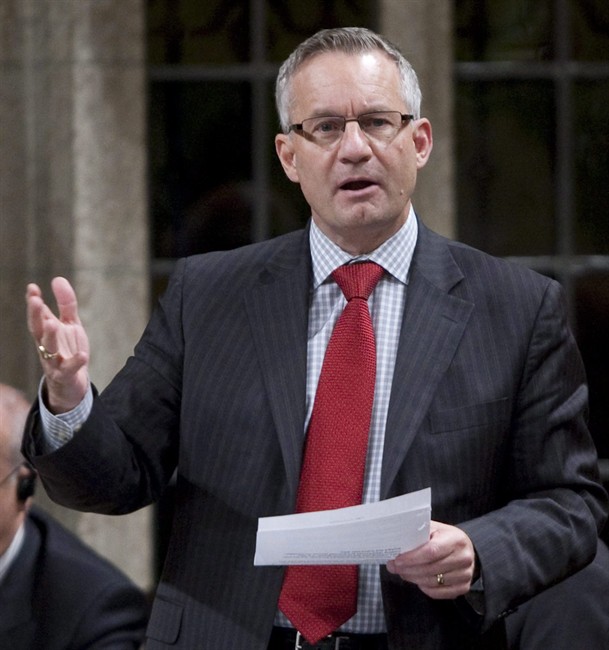OTTAWA – Canadian Trade Minister Ed Fast insisted Wednesday he is not worried about missed deadlines in free trade talks with Europe as negotiators wrapped up a scheduled three-day session in Brussels with no apparent deal.

Pressure is building on the Canadian negotiators because of the European Union’s intention to launch talks with the big fish in the North American pond – the United States – and several European warnings the window is closing fast on Ottawa.
“We’re making progress,” Fast said in an interview.
“There’s some difficult issues left to be negotiated. We’re coming up with creative ways of bridging the gaps that remain and from all the reports I’ve received from my negotiators, they’re making excellent progress.”
According to officials and observers, the key sticking points have not changed since an unofficial deadline to conclude the nearly four-year-old talks came and went in December. Since, an new wrinkle has emerged complicating the process with the U.S. and Europe agreeing to launch their own free trade talks this summer.
Canada is still seeking expanded access into the market of 500 million consumers for its beef and pork producers, while EU wants Ottawa to reduce quotas and tariffs that would make cheese imports more available and price-competitive.
As well, the two sides are haggling over country of origin rules for autos – how much Canadian content must be in exports of North American vehicles into Europe – provincial government procurement limits, drug patent protection that could potentially increase drug costs in Canada, and “geographical indications,” the ability to claim exclusivity for products named after regions.
Optimists still believe a deal will be reached with an announcement possibly coming at the G8 summit in Northern Ireland in June.
But observers say it is essential the two sides come to a meeting of the minds on the key issues soon, or risk losing momentum.
“I think they are making progress,” said Lawrence Herman, a trade lawyer at Cassels Brock, who cautioned that the delays aren’t positive.
“If it drags on too long, progress starts to unwind. So while there are no deadlines, if it’s not done in the next few weeks, I think it will be in some difficulty.”
Fast insisted he is not worried about meeting an arbitrary deadline.
“I’m not focused on a calendar date, I’m not focused on a deadline. I’m focused on the quality of the trade agreement we get with the EU,” he said.
Recent statements from European officials have described the talks as both stalled and near completion.
Herman said with so much time and effort extended in reaching an agreement, neither side wants to walk away now so close to the finish line.
The pressure on the Harper government is especially acute given it has made expanding exports into countries other than the United States a key pillar of its economic agenda. But besides boasting of having signed numerous agreements in the last six years, none have come with a major market – Europe would represent the biggest deal since NAFTA in the early 1990s.
Herman said Canadians should not under-estimate the pressure on the EU, however. He said the 27-country bloc is hoping to use a signed agreement with Canada as a template for its more crucial negotiations with the U.S. that would demonstrate both an ability to compromise and the validity of some of its demands.



Comments